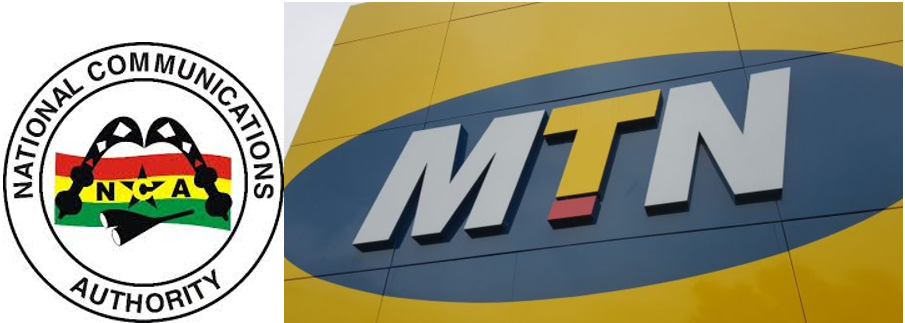On the 8th of June 2020, the National Communication Authority (NCA) of Ghana issued a press themed: “Declaration of Intent to Classify Scancom (MTN) as Dominant/Significant Market Power”. According to the release, “The NCA in the exercise of its mandate under Section 20 (13) of the Electronic Communications Act, 2008, (Act 775) declared its intention to classify MTN as a dominant/Significant Market Power”. This release was issued after government (represented by the Minster of Communication) had directed the NCA to enforce provisions of the Electronic Communications Act, 2008 (Act 775) and the National Telecommunications Policy (NTP) to address disparities in the market and revenue share in the telecommunication sector.
Portions from the National Telecommunications Policy relevant to this issue at stake states that “…The NCA will define regulations to establish significant market power (SMP), but in general, SMP will be determined to exist for an organization providing telecommunications service that controls at least 40% of a relevant market segment”. From the Electronic Communications Act, 2008 (Act 775) Section (3), The act states that “where an operator has significant market power, as determined in accordance with the criteria set out in this Act, the operator shall make available to other operators of electronic communications networks or providers of electronic communications services, technical information regarding the network or service, including planned deployment of equipment and other information relevant to the other network operator or service provider”.
In the same act, Section (8) lists the obligations of any SMP. These obligations are
(a) disaggregate its network or its service or its network and service and on a cost-oriented basis specified by the Authority establish prices for its individual elements and offer the elements at the established prices to other operators and service providers,
(b) publish, in the manner specified by the Authority the prices, technical, commercial and other terms and conditions pertaining to its offer for elements of interconnection, and
(c) permit other network operators and service providers to have equal access to directory listing, operator services, directory assistance and directory listing without unreasonable delay, in accordance with requirements specified by the Authority.
The Electronic Communications Act 2008, defines Significant Market Power as a network operator or service provider, either individually or jointly with other operators or providers, has a position that allows it to behave in a way that is appreciably independent of its competitors and customers
Now there has been an outcry by some industry players indicating that NCA and government by this release, are looking forward to drawing back the successes chocked by MTN. MTN is arguably a pace setter in the industry. Amongst other things, they were the first to rollout LTE as a Major Mobile Network Organization (MNO) in Ghana and the first to publicly float on the Ghana Stock Exchange. They started Mobile Money over a decade ago and finally, is the company to have made access to Subscriber Identity Module (SIM) very affordable and accessible. The latter was the reason they accumulated a high number of subscribers in the very few years they started operation in Ghana. At the time when owning a SIM card from other MNOs (Ghana Telecom now Vodafone) and Mobitel (Millicom International Cellular) was considered a luxury and in some instances, difficult to acquire. MTN changed the face of telecommunication in Ghana by proving easy access to its SIM cards at very affordable rates, and rolled out quickly to all major towns and cities. They marketed their brand excellently which made the masses buy into their product.
Ghana borrows the policy of SMP from the ITU-T, the Organization for Economic Co-operation and Development (OECD) and especially the European Union’s 2002 Common Regulatory Framework for Electronic Communications Services. All these organizations have capped the market share for an operator to be determined as a SMP to 25%. In Ghana, our NTP caps it at 40%. Even with this significant huge percentage difference, we never had any operator being classified as SMP until recently. MTN Ghana currently has approximately 68% and 57% of data and voice market share respectively (NCA, March 2020 Communication Industry Statistics). Data available from NCA indicates that MTN has over 45% market share for both voice and data since 2013 (See Table 1 and 2). The question one needs to ask is why NCA failed to classify MTN as a significant market power until now?


Figures available indicates that MTN has invested a lot in expansions and upgrades of their network to achieve what they currently have. Presently there seems to be very less competition in the space. Competition provides choice and lower prices for users. In the event an operator grows and becomes a dominant force in the industry, it is the citizenry that suffers. The dominant force could grow and force the other smaller operators to shut down. When this happens, consumers get less choice and higher prices.
In the spirit of checking SMP, some mergers and acquisitions can be blocked. Assuming MTN in its current form acquires or merges with Vodafone in Ghana. The combined market share of this new organization would be over 85%. With time, all the other MNOs would fold up, and the Ghanaian consumer would be the loser.
It is therefore prudent that the regulator takes steps to implement the guidelines that comes with the classification of MTN as SMP and ensure the other MNOs are protected and supported to grow. The economy needs all the MNOs to grow with significant share of the telecom economy and market. Although the NCA should have implemented the law several years ago, it is better late than never. As an industry person, taking cognizance of ITU-T D.261 recommended principles of minimum intervention and proportionality in respect to identified SMPs and to increase competition, I recommend the following:
- Provision of subsidized LTE licenses or authorization for deployment by MNOs who have not been able to deploy LTE
- Invitation of more mobile virtual network operations to take advantage of the capacity available from the SMP
- Support the implementation of local roaming for all operators
- Maintain a fixed amount for all interconnect calls
- The state should facilitate the provision of fiber optic networks to all areas in the country. This should be led by the state and priority given to the smaller MNOs to connect more homes and offices to their network to enjoy voice, data and over the top products. This would give them a competitive advantage in the fiber space to have a significant share in that space.
Author: Samuel Hanson Hagan; | Telecommunication Consultant | Member, Institute of ICT Professionals Ghana
For comments, contact email: shhagan@gmail.com | WhatsApp: +233507393640





